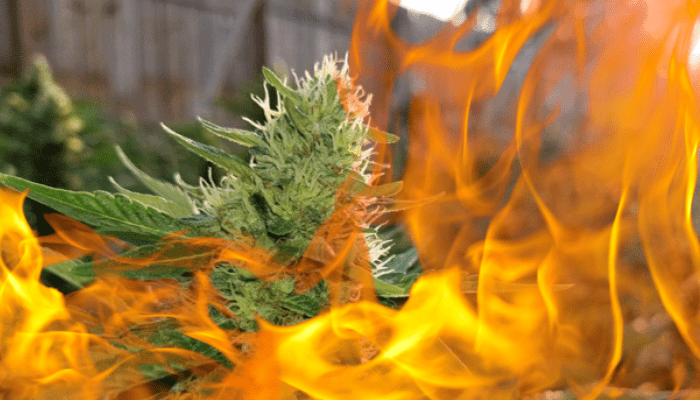
“Sooner or later, we’re all going to have to settle on legal suppliers.”
Dear Reader,
As if the early frost in Colorado wasn’t bad enough.
Now, terrifying wildfires have incinerated the West Coast, including throughout Northern California’s gorgeous Emerald Triangle, where more cannabis is grown than in any other place in America. According to news reports, many cultivators have run from the flames, while in cases where growers were able to remain in place, crops that actually survive the blazes often become contaminated by soot.
I know, I know, I’m talking about weed while lives are at stake. Even worse, I am well aware of how damn uncompassionate that is. Such sentiments aside, thousands of people are out of a job in the pot industry, legal and otherwise, while a whole lot of the rest of us are going to feel the burn too, even all the way out here in Massachusetts. Let me explain…
Like others who experience pain, depression, or just like getting extremely high, I still pay close attention to the underground pot economy, which is thriving to a certain extent—anecdotally, at least in some part due to the pandemic, and certainly in large part as a result of there still not being enough recreational dispensaries open for business in certain areas. For me, my main interest in subterranean sativa is to save money, sure, but more so because edibles that are available for legal purchase in this state aren’t even in the ballpark of what floats my boat (the limit is 5mg per serving, with up to 20 servings per package, whereas single servings shipped from out West are often well over 100mg apiece).
I am hardly here to lambaste local dispensaries for their relatively high prices; I understand the economic realities of operating a cannabis business in a state where even communities that welcome cannabis tax revenue freely extort operators. On the contrary, I’m just being real, and saying that sooner or later, we’re all going to have to settle on legal suppliers.
As power outages, light deprivation, smoke, ash, and chemicals compromise countless Pacific Coast harvests, sooner’s probably the safer bet.
CHRIS FARAONE, EDITOR-IN-CHIEF
A Queens, NY native who came to New England in 2004 to earn his MA in journalism at Boston University, Chris Faraone is the editor and co-publisher of DigBoston and a co-founder of the Boston Institute for Nonprofit Journalism. He has published several books including 99 Nights with the 99 Percent, and has written liner notes for hip-hop gods including Cypress Hill, Pete Rock, Nas, and various members of the Wu-Tang Clan.

